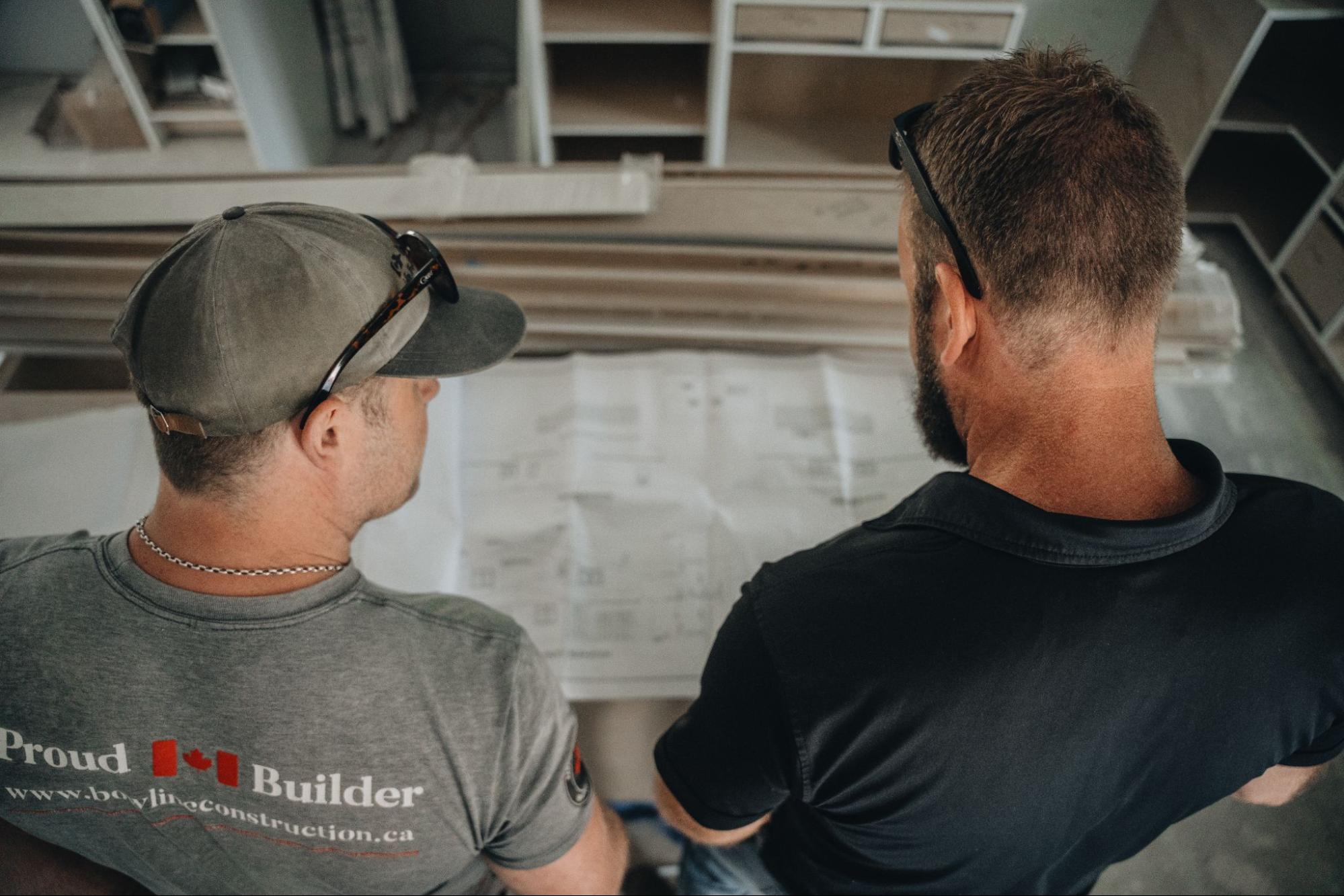

Top Traits You Need in a Roofing Project Manager
.png)
Top Traits You Need in a Roofing Project Manager
Your project manager is one of your team’s key players, but to win the roofing game, you’ve got to have the right person in the role.
Here you are again. Another roof replacement project has gone bananas, blown through its budget, the completion date fast approaching, two crew members haven’t shown up, and you’re back on the tools, trying to salvage the project and avoid yet one more call from an irate client.
Why does it feel like projects always seem to end this way?
If scrambled frenzies have become your MO, it’s probably time to tighten up your business management practices. A good place to start is by looking at who you’ve got at the helm of your projects.
A solid project manager can help smoothen out the chaos, ensuring the work holds to the set budget and schedule. But they’ve gotta know what they’re doing, which is easier said than done given that the roofing industry doesn’t exactly have well-defined guidelines for the job.
Fortunately, there ARE people out there who get it – the trick is to find them. This overview will assist with understanding what a roofing project manager does (or should do!) and how to recognize when you’ve found a great one.
What does a roofing project manager do?
A roofing project manager is primarily in charge of overseeing a project’s budget and schedule, but the role also encompasses other responsibilities, such as:
- Defining the project scope
- Coordinating resources, including labor, equipment and materials
- Handling communications with the customer and other stakeholders
What makes a star roofing project manager?
Whether amazing project managers are born or made is a debate for another time. What we do know, is that there are certain traits that tend to exist in those who excel at it.
Whoever you choose will often function as the face of your brand with customers. It can be an extremely demanding role and it’s important to find someone with the right temperament and perspective, whose values align with yours.
Here are some characteristics you should see in an ideal candidate:
⭐ Articulate – they can express situations in a way that’s clear and comprehensible.
⭐ Resourceful – they’re natural problem-solvers, undaunted by obstacles.
⭐ Organized – they have the answers at their fingertips.
⭐ Tech-savvy – they’re comfortable with project management platforms.
⭐ Personable – they can be trusted on the frontlines of customer relationships.
If you’re not sure whether you can afford a STAR project manager, you could probably stand to get your business finances in better shape. This Budget Quick Tool can get you started.
Why does good project management matter for a roofing company?
Running smooth projects comes with a bunch of benefits, both for the state of your business and your personal life.
Here are some of the biggies:
- Higher profits - you’ll get through projects faster, which means you can move onto the next one sooner and bring in more revenue annually.
- Better quality - a calmer approach means a more successful completion, including time to conduct final checks and ensure everything’s in top shape.
- Happier customers - they’ll have fewer surprises, which means they’ll be more prone to recommend you to any neighbors who need roofing services.
- More presence - when you’re with friends and family, you can be fully THERE, without the mental distraction of fretting over your projects.
How to work with a roofing project manager
No matter how capable your project manager is, there are definitely some things you can put in place to set both them – and your company – up for success.
Decision-making power
Your project manager ought to be empowered to make decisions about the cost and timeline of the roofing project. Granting them independence in these areas frees you up to better allocate your time, and places the budget and schedule responsibilities squarely on their shoulders (where they belong).
If you don’t feel you can trust your project manager with these vital tasks… you may have to examine whether you’ve made the right hire.
Employment agreement
Create a well-defined employment agreement that provides clarity on what’s expected of your project manager. It should state exactly what they’re responsible for and the rewards they’ll receive if they deliver on their goals.
Writing employment agreements from scratch can be tough so bypass the blank page with this Employment Agreement template designed specifically for project managers.
Accountability system
Once you’ve agreed to the parameters of the role, set up an accountability system to uphold those expectations. The Goal Setting & Review (GSR) system is a powerful tool for this purpose that helps keep project managers organized and allows you to track the progress of their projects.
To learn more about the GSR system, you can check out this free web class. We’ve also developed a GSR template to get you started with implementing this powerful system.

Tech platform
Most experienced project managers are likely to be familiar with at least one project management platform. Good tech will make their lives easier (not to mention your projects more organized).
Roofing project management tips
These tidbits have been gleaned from the master roofers we’ve worked with over the years. We offer them to you in hopes they help take the success of your projects to the next level.
Communication
When everyone on the project knows what to expect, it creates a camaraderie and sense of calm that makes it much easier to navigate the unexpected when those moments (inevitably) arise.
Whether it’s the customer, the crew or the subcontractors, keep all the stakeholders in the loop about the project plans, especially when there are changes.
Standardization
Standard operating procedures (SOPs) can be gamechangers for your team – and your projects.
They create consistency in how things are done and save massive amounts of time when it comes to training staff.
They also don’t need to be hugely time-consuming to produce, contrary to popular belief. We’ve got all sorts of hints to help streamline these tools. If you’re ready to lean into standardization, take a moment to view this SOP webclass.

Updates
To be proactive about potential issues, your project manager should speak with the customer regularly, ideally every week or two, and these meetings should include discussion about:
- The current state of the project’s budget
- Whether the project schedule is on track
- Any pending decisions the customer still needs to make
Regardless of whether your company is focused on residential or commercial roofing, having a stellar project manager involved brings immense benefits. Not the least of which being that you won’t have to pick up a nail-gun anymore… unless you want to.
Ready to take your roofing business to new heights? Learn more.
Table of Contents










